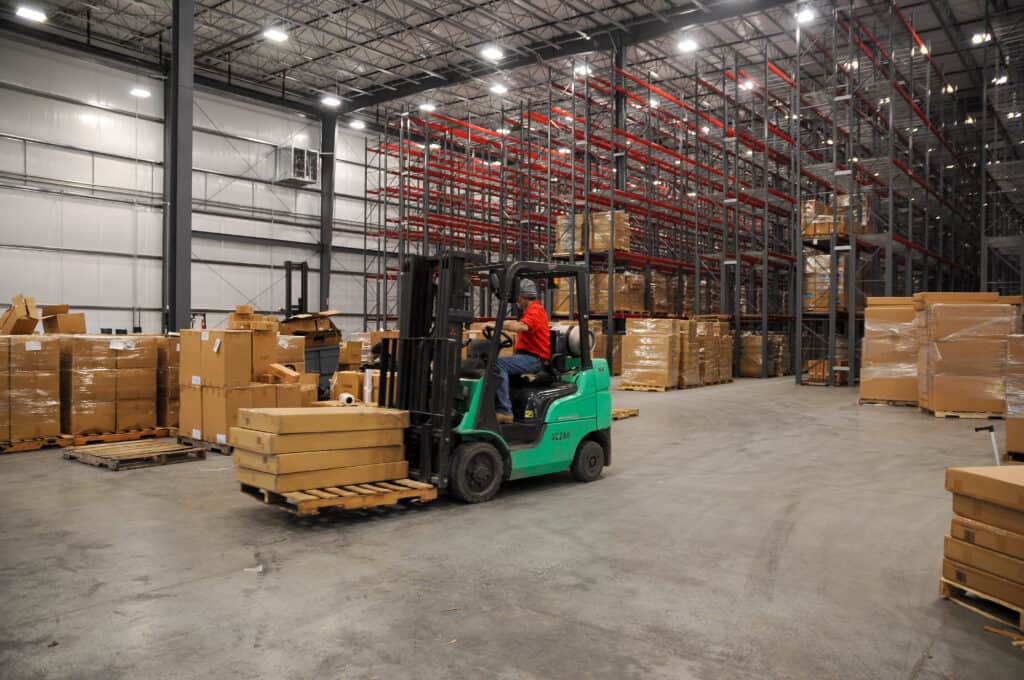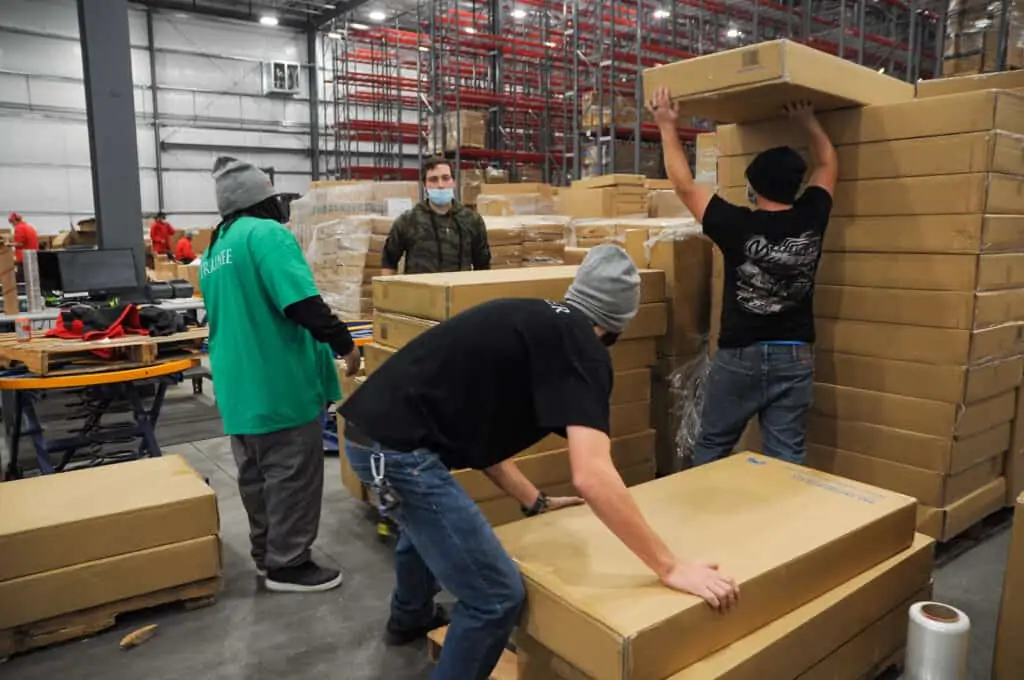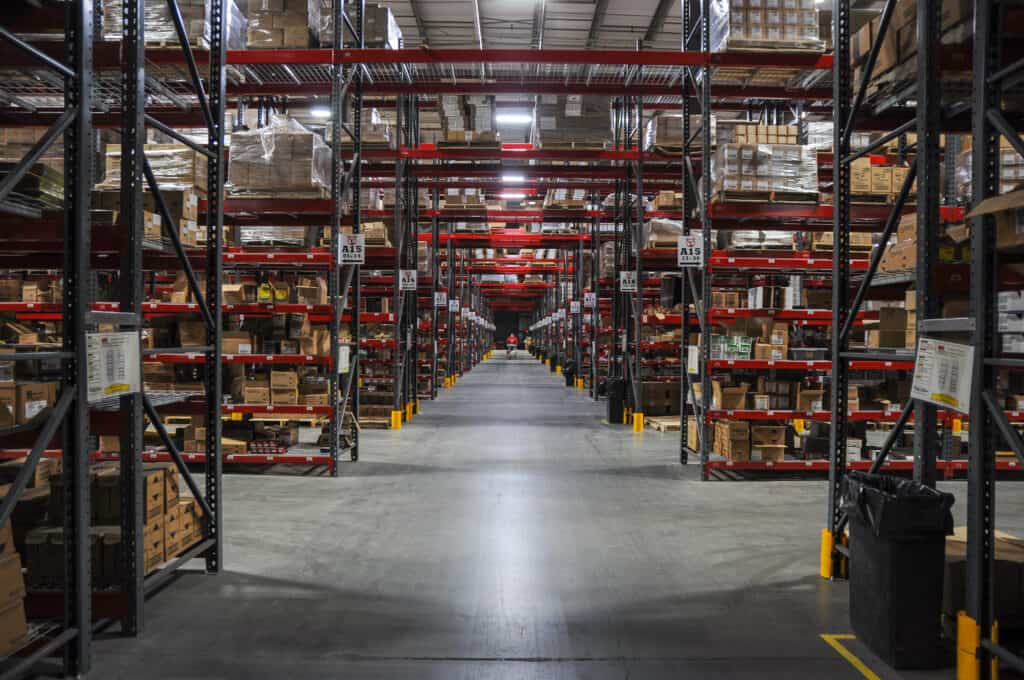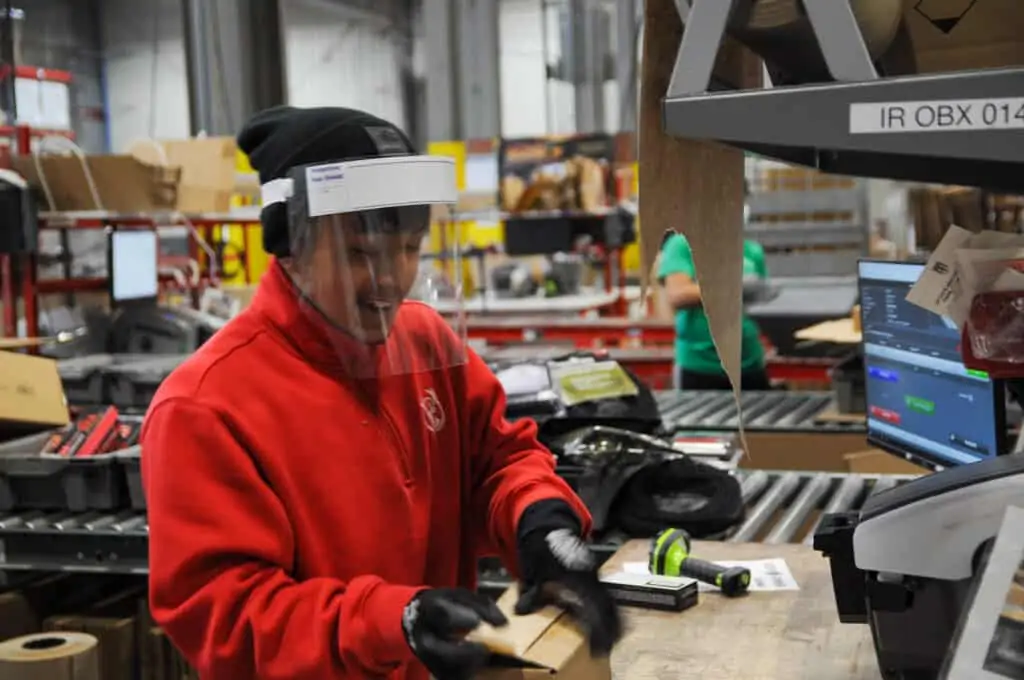If you’ve been asking, “What is a CFA, and do I need one?” you’ve come to the right place. In this article, we explain the services CFAs provide, with help from Red Stag Fulfillment’s Director of Logistics, Lorrie Watts. We also cover what services you can get from a 3PL and where to find the ecommerce fulfillment and supply chain management services you need.
TL;DR:
Key takeaways

A CFA (Clearing and Forwarding Agent) helps companies move products internationally through customs and transportation networks.

CFAs provide customs clearing and freight forwarding services but don’t offer warehousing or order fulfillment.

3PLs offer warehousing, order fulfillment, and potentially other logistics services that CFAs don’t provide.

Most eCommerce businesses need both CFA services for international shipping and 3PL services for order fulfillment.

What is a CFA?
01
A CFA is a clearing and forwarding agent. CFAs help companies move products internationally. They may provide temporary warehousing, but CFAs don’t offer order fulfillment services.
NOTE: “Your clearing agent is the person you’re going to work with to communicate with customs on your behalf,” Watts says. “Your freight forwarder, on the other hand, is responsible for the physical movement of your shipment.” CFAs handle both of those functions.
Services provided by a CFA
02
CFA services can be divided into customs clearing and freight forwarding. While a CFA provides end-to-end international transport services, you can also find independent customs brokers and freight forwarders to handle each function separately.
Clearing agent services
“In order to clear customs on non-parcel shipments, you need a customs broker,” Watts says. A certified customs broker will understand the complex rules and regulations of moving goods across international borders. A customs broker will fill out customs paperwork and ensure that duties and tariffs are paid so your products don’t get held up at the border.
PRO TIP: “If you misclassify something, you can get fined large penalties,” Watts says. “The customs portion of an operation is one of the better things to outsource because it’s so complicated.”

Freight forwarding services
A forwarding agent, also called a freight forwarder, can take charge of finding space to transport raw materials to your factories and finished goods from your factory to your 3PL. The freight forwarder will secure space for rail, truck, container ship, and air transport, as needed.
Some eCommerce businesses outsource all the freight transport elements of their supply chain to a freight forwarder. Others will use a forwarding agent for part of the journey, most often the ocean portion. Watts notes that a top forwarder will have established relationships with shipping companies to make shipping more economical. Though, she adds, “nothing is economical in the current market.” With the cost of container shipments sky-high, a freight forwarder is still an asset. “Typically, they can help you get space that you couldn’t get on their own,” she says.
Key Takeaway: Freight forwarding can also encompass the return of empty containers to the port. Once a container leaves the vessel, you begin to accrue detention and demurrage charges. The shipping lines own the containers, so once your container is discharged (unloaded) from the ship, you start accruing demurrage charges. As soon as the container leaves the port, detention charges apply.

Who needs a CFA?
03
“Almost everybody is going to need this service,” Watts says. “Even giant retailers that ship hundreds of thousands of containers a year will occasionally use freight forwarding services in addition to their direct contracts to help secure the necessary space on a vessel.” And, she adds, “If you’re a small to a mid-sized shipper, you really have no choice.”
A clearing agent can save you penalties and help your shipments clear customs more quickly. A freight forwarder can find the most economical and fastest transport routes, reducing your product cycle time and helping put your products in the hands of your customers.

What is the difference between a CFA and a 3PL?
04
A 3PL provides a suite of services that a CFA does not. Third-party logistics companies store merchandise and fill customer orders. However, 3PLs may offer a range of services beyond standard pick and pack fulfillment. For example, you can get kitting services to assemble products or product sets right in the warehouse at some fulfillment companies.
NOTE: You may be able to obtain customs brokerage and freight forwarding services from your 3PL. In addition, your 3PL can help you unload and return containers quickly to minimize your detention charges.

Services provided by a 3PL
05
Outsourcing your logistics to a fulfillment center is an excellent way to enhance your eCommerce operations and grow your business. As eCommerce expands, the range of services provided by 3PLs is also expanding. These are the essential services you can expect from your 3PL, but you should ask your customer representative whether the warehouse can provide other services such as inventory planning. Additional services could include those offered by a CFA but a CFA firm will not offer 3PL services.

Receiving
The 3PL is responsible for unloading incoming shipments, logging items into inventory, and placing them on the shelves. Processes such as cross-docking can move inbound shipments directly to the outbound dock to quickly fill backorders.

Warehousing
Warehousing is much more than storing inventory on shelves. Warehouse and inventory management includes developing a warehouse layout that optimizes fulfillment operations. That can involve placing merchandise with the fastest turnover close to the packing station to reduce the distance pickers have to travel. Another example is designing warehouses to handle oversized products by creating wider aisles and installing packing equipment built to handle heavy items, as Red Stag Fulfillment has done in our fulfillment centers.

Order fulfillment
Order fulfillment starts when a customer places an order through one of your sales channels. Your order goes to your fulfillment center, usually via API, so the data transfer is instantaneous. The warehouse management system generates a pick list, which the picker uses to collect the products in that order. Then a packer boxes the order, adds the shipping label, and sends the parcel to the shipping station. A carrier picks up the package for delivery to the customer.

Reverse logistics
Some online retailers have returns shipped back to their headquarters, even if they use a 3PL. However, many 3PLs can handle returns quickly and efficiently.
Red Stag Fulfillment helps connect ecommerce companies to the services they need
06
Our goal at Red Stag Fulfillment is to provide the best fulfillment services you’ve ever experienced. Although we already offer unmatched accuracy guarantees and low error rates, we know we can’t rest on our laurels. We constantly expand and improve our service offerings, driven by customer requests. For example, Watts has saved several clients detention and demurrage charges by working with them to get empty containers back to port. If you need CFA services, we’ll help connect you with the services that we don’t provide in-house.
PRO TIP: If you’re ready to take your business to the next level, you need a top-notch fulfillment partner. Red Stag Fulfillment’s specialized expertise in heavy, bulky items and transparent pricing makes us ideal for eCommerce businesses looking to scale.
If you’re ready to take your business to the next level, you need a top-notch fulfillment partner. Red Stag Fulfillment might just be the right fulfillment company for you. Give us a call to find out.
Frequently asked questions
Do I need both a CFA and a 3PL?
Yes, most eCommerce businesses that engage in international trade will need both CFA services for moving products across borders and 3PL services for warehousing and order fulfillment. While a CFA handles customs clearing and freight forwarding, a 3PL manages inventory storage and customer order processing.
How do I select the right CFA for my business?
When selecting a clearing and forwarding agent, look for industry experience, knowledge of your specific product categories, established relationships with carriers, transparent pricing, and strong communication practices. Ask for references and evaluate their track record with businesses similar to yours in size and scope.
More about clearing and forwarding services:







